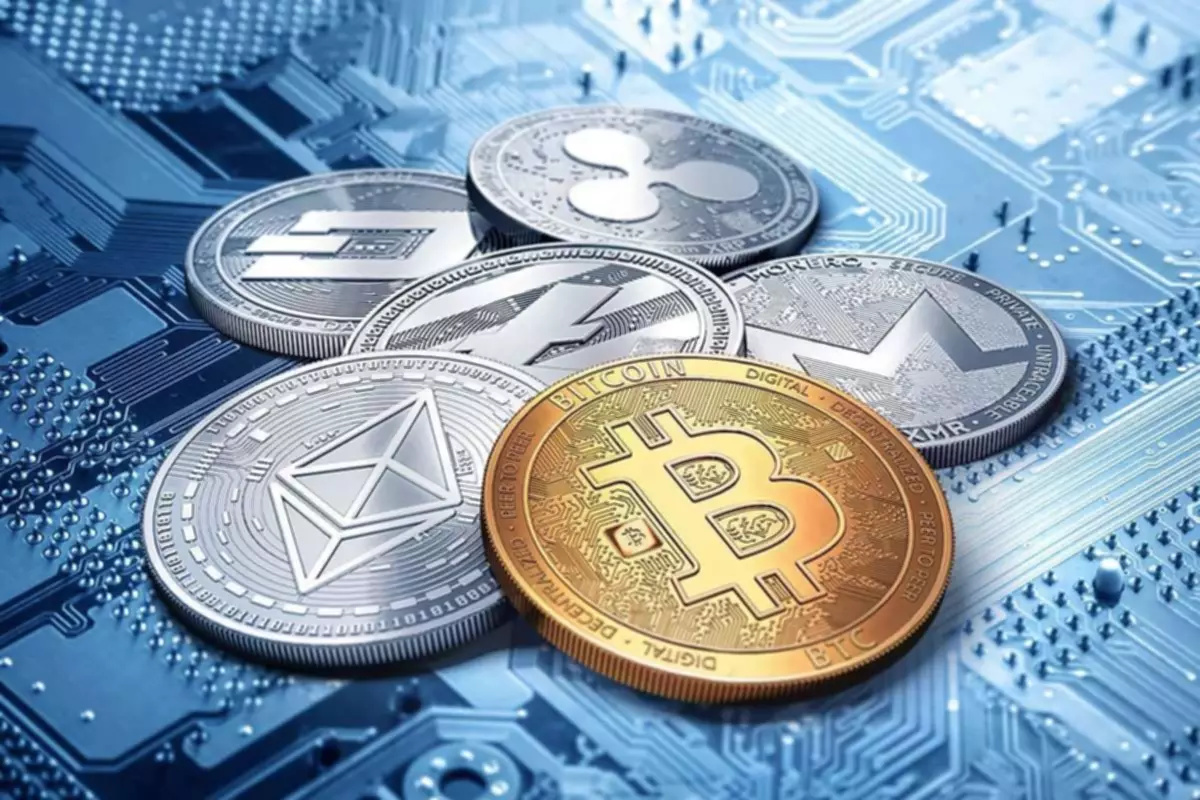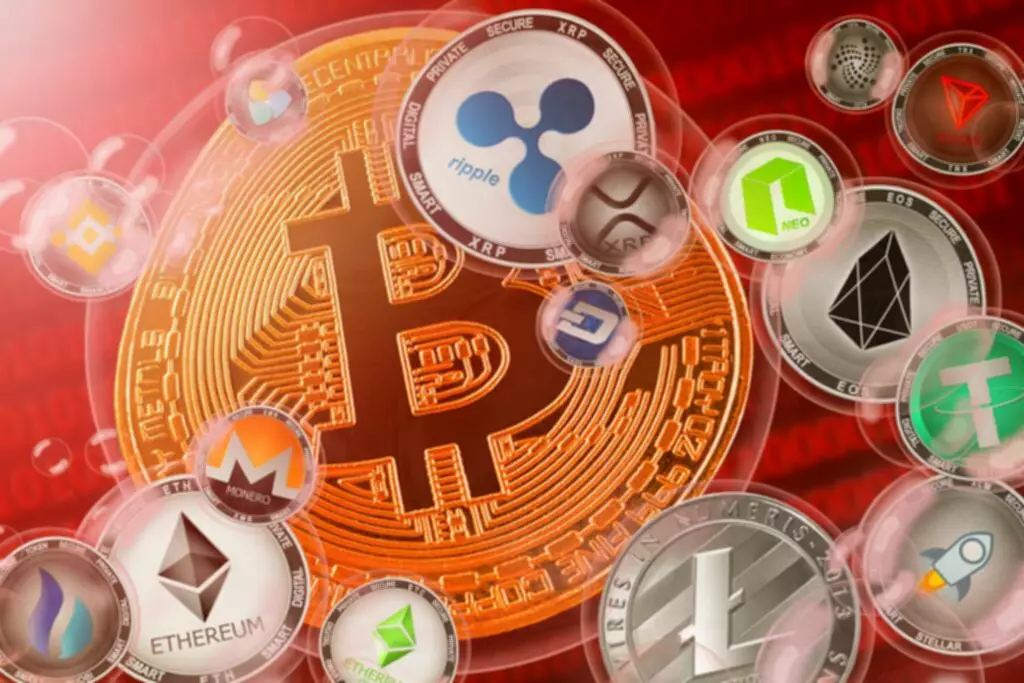Content
If the same person pays you back later with Bitcoin, the receipt goes to the Bitcoin blockchain. Each transaction is protected by encryption and is accessible by any member of the network. Let’s go over some of the cryptocurrencies VS tokens differences most significant distinctions between tokens and coins, so next time you’re making a reference, you’ll know exactly what you’re saying. Because tokens have numerous use cases, there may be different types of them.

Though coins and tokens use distributed ledger technology , there are some significant differences between a coin and a token. The huge boom in valuation may be meaningless if we do not distribute the wealth equally in society. Currently, 10% of the global population holds 90% of the wealth. The crypt industry could skew that value to 1% of the global population, holding 99% of the wealth.
What Is Bitcoin Mining?
So, let’s find out how they differ and whether one can be considered to be a better investment option than the other. They are similar to stocks except they are based on a blockchain. This asset could be a company, real estate, or even a car. Security tokens eliminate the delays and fees that are typical of brokerages.
There is the full list of cryptocurrencies at the main page, but using a drop-down list it is possible to choose “Coins only” or “Tokens only”. You can buy the coins and tokens mentioned in this article (as well as many others!) at fair rates and with low fees on Changelly. Tokens are decentralized – instead of relying on a central authority, they are run by the rules defined in its protocol using smart contracts.
Tokenization
For example, there are governance tokens that have only one purpose — to give their holders voting weight. Transaction fees on the network are paid in bitcoins, which are used to incentivize the validators of the network. Chainlink is ERC-20For instance, Chainlink is an ERC-20 token built on the Ethereum network. It serves as a currency to pay for Chainlink network operations.
For instance, many believe crypto coins and tokens are the same. At a basic level, all coins are considered tokens but not all tokens are considered crypto coins. Tokens behave very similarly to cryptocurrencies, in the sense that they are a type of currency that exists on a blockchain, and can be transferred from one account to another. However, unlike cryptocurrencies, their behaviour is not built into the blockchain software itself. Instead, their behaviour comes about by implementations in smart contracts. These smart contracts tally the units of the token transferred between accounts.
- Developing a coin is often a lot more time-consuming because of this (unless a developer wants to copy or heavily borrow from a pre-existing blockchain protocol).
- The holder of the token is the only official owner at that time.
- Ethereum standards are introduced as Ethereum Requests for Comments .
- Read on to find the proper definitions of coin and token and their differences.
- As for investment point of view, tokens are better than coins.
- The efficiency and security of the underlying blockchain technology are among the factors that determine the coin’s intrinsic value.
As a result, owning a utility token may provide you with benefits far beyond monetary ones. First and foremost, tokens can be used in the same way coins are – as a speculative asset to be invested in. However, unlike crypto coins, they have actual purposes, and can also represent physical assets or even certain utilities or services. Being able to tell crypto coins and tokens apart is an important skill for any crypto investor.
Are Stablecoins Coins Or Tokens?
The main difference between coins and tokens is whether the asset is native to its own blockchain. However, there are other differences such as what coins and tokens are used for. Like their name implies, crypto coins are primarily used for payments, as currencies, and thus are better for transactions. On the other hand, crypto tokens have more use cases such as for governance, voting, data funding, smart contracts, metaverse money, and specific DeFi protocols.

For example, NFTs (no-fungible tokens) are one-of-a-kind items, so the change in ownership must be manually handled. A coin doesn’t have to be moved from one place to another. The creation of Bitcoin, and later other currencies, enabled efficient global transactions and the digital transfer of value. Thus, coins are primarily designed to function pretty similar to fiat money.
Read More from the CoinFlip Team
The holder of the token is the only official owner at that time. NFTs are issued on the blockchain with an immutable record of ownership. To prevent NFTs from being replicated, ownership is managed through unique identification codes and metadata. Bitbond’s security token offering in 2019 can also be used to illustrate the concept of security tokens. When Bitbond issued its tokenized bond, it was the first regulated STO in Germany.
Central African Republic delays crypto token listing, cites ‘market … – Reuters
Central African Republic delays crypto token listing, cites ‘market ….
Posted: Tue, 20 Dec 2022 09:09:00 GMT [source]
There are a multitude of utility tokens that each have unique purposes. Chainlink incorporates real-time data like traffic and weather into smart contracts. Arweave is a new, secure data storage solution that incentivizes users to store data for long periods of time. Users are rewarded with an AR token the longer they store data. A coin is a cryptocurrency that has its own independent blockchain network.
Is Bitcoin a token or a coin?
Developing a coin is often a lot more time-consuming because of this (unless a developer wants to copy or heavily borrow from a pre-existing blockchain protocol). Security tokens are financial instruments and value carriers that replace the paper certificate of securities. Analog to paper-based units, security tokens can be traded on secondary markets for example on marketplaces and security exchanges. For that reason, security tokens can be seen as the “blockchain version” of traditional financial securities. Hence, coins function as the instrument with which transaction fees and other operations are paid. Consequently, native coins are always the cryptocurrency of the blockchain they run on.
Well, back in 2009, when the elusive Satoshi Nakamoto developed Bitcoin , it came in the form of a coin. This is because Bitcoin has a unique blockchain designed specifically for BTC transactions alone. Today, BTC is the only coin on the Bitcoin blockchain, though hard forks have produced offshoot coins like Bitcoin Cash and Bitcoin Gold. There’s a difference between a crypto coin and a crypto token, and it’s important to understand. Coins directly represent a proposed medium of exchange. The tokens can be held for value, or traded, and staked to earn interest.
You’ll find a high density of this type of activity on decentralized exchanges, such as Uniswap. Understanding the difference between a coin vs a token is important for any cryptocurrency enthusiasts planning to dive deep into the crypto world. The in-depth description of coins and tokens in this article should help you to avoid confusion with crypto terms. A standard defines the smart contract and the features of the token. Different blockchains have their own token standards.
The Difference Between Coins And Tokens
Ethereum uses Ether as its native currency, but tokens such as BAT and Loopring exist on Ethereum’s blockchain. They do this because the team of developers can allow Ethereum to provide all the safety and security while the team behind the token just focuses on making a token that has good features. Ethereum’s blockchain calls its tokens called ERC20 tokens. Security tokens represent a tradable investment or asset. The shares of a company can be tokenized, as can the deed to real estate or a car.
It is backed by US dollars, held by the company that issues the token, to maintain the value of every USDC at US$1. Some governance tokens offer holders voting rights in a DAO. On a broader scale of things, tokens existed long before cryptocurrency was a thing. Even today, it has very little to do with crypto at all.
If you think that a coin is the same as a token, you should think again. Many people, even some crypto companies think that both token and coin are the same, but they are not. There are some big differences between crypto-tokens and crypto-coins. Crypto coins allow individuals to make payments using their digital currency. People can use tokens, though, for many more reasons.
Many blockchains are created from scratch as alternative or improved versions of Bitcoin and other existing public ledgers. Creating a blockchain is also possible with a pre-built open-source blockchain, but it still requires time and a certain level of expertise. Because you can not create a coin without building a blockchain, that means it is not easy to launch a coin.
Crypto coin transactions are handled by the blockchain itself. When a coin is sent from one user to another, the transaction is recorded on the blockchain. The balance of the investors’ wallet is updated accordingly as they receive the asset. Since crypto coins are digital currencies, funds simply move from one wallet to another without being physically transferred.
Otherwise, all seven additional cryptos on our roster can safely be referred to as coins. If you’re looking to improve your understanding of cryptocurrency, this article is for you. Read on to find the proper definitions of coin and token and their differences. This also means that if you have a https://xcritical.com/ wallet that supports Ethereum, all assets that use the Ethereum blockchain, such as ERC20 tokens, are compatible with your wallet. Though depending on the wallet, not all Ethereum-based assets might be displayed. The Tron network now has its own native token, after the release of its mainnet .

Comentarios recientes